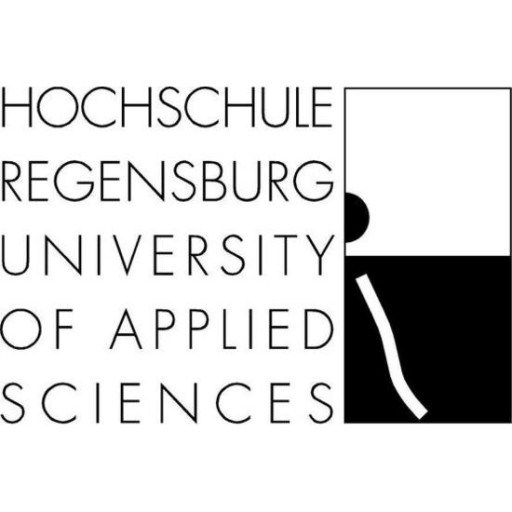Photos of university / #unifreiburg
Embedded Systems Engineering at the University of Freiburg is a comprehensive interdisciplinary bachelor's program designed to equip students with the theoretical knowledge and practical skills necessary to develop, implement, and optimize embedded systems across various industries. The curriculum combines core subjects in electrical engineering, computer science, and software engineering to provide a well-rounded education that addresses the unique challenges of embedded systems design, such as real-time performance, energy efficiency, and system reliability. Students will engage with topics including microcontroller programming, hardware architectures, real-time operating systems, sensors and actuators, signal processing, and communication protocols. The program emphasizes hands-on experience through laboratory work, project-based assignments, and internships, enabling students to apply their knowledge to real-world scenarios. Additionally, students will learn about the integration of embedded systems into larger systems, such as automotive, medical devices, consumer electronics, and industrial automation. The curriculum also covers important aspects of system development processes, testing, and security. By the end of the program, graduates will be prepared for careers in designing embedded solutions in innovative fields, research and development, or further specialization through master's studies. The flexible program structure allows students to tailor their education according to their interests, supported by excellent teaching staff and state-of-the-art laboratories. The University of Freiburg's unique interdisciplinary approach ensures that students gain a holistic understanding of embedded systems in the context of comprehensive technological solutions, fostering creativity, problem-solving skills, and a deep understanding of the societal and environmental impacts of embedded technologies.
Educational organisation
In the first two semesters, ESE students will study the foundations needed for the design of embedded systems. These foundation courses are:- Cyber-Physical Systems / Discrete Models
- Sensors and Actuators
- Assembly and Packaging Technology
- Microelectronics
- Modeling and System Identification
In the third and fourth semesters, ESE students can specialise in two concentration areas, one from the field of computer science (reliable embedded systems, distributed systems or robotics and computer visions) and one from the field of electronics (circuits and systems, design and simulation or sensors and actuators). In addition, they can take elective courses in the personal profile, which includes all courses offered at the Faculty of Engineering. These can be lectures, seminars or lab courses.
During the final project leading to the Master's thesis, the students are directly involved in one of the research projects at the Faculty of Engineering.
Forms of assessment
Most courses are assessed by written or oral exams. Some require submission and presentation of a paper or of a piece of project work.Course objectives
The goal of the Master's programme in Embedded Systems Engineering is to provide knowledge pertaining to the design, development and application of embedded systems. This includes skills required in order to develop microelectronic, micromechanic and software-based components and to integrate them into a complete system, taking speed, cost, and energy efficiency into account. Depending on the chosen concentration areas, students may specialise in circuits and systems, design and simulation, sensors and actuators, reliable embedded systems, distributed systems or robotics and computer vision.Language requirements
Applicants must provide proof of their English AND German skills.English: TOEFL iBT 87, IELTS 6.0, Cambridge Certificate of Advanced English, or Cambridge Certificate of Proficiency in English
German: B1 certificate (according to the Common European Framework of Reference for Languages CEFR)
Academic requirements
Applicants must hold a Bachelor's degree in embedded systems, information technology, computer engineering, electronics, mechatronics, physics or a closely related field with an excellent CGPA or final grade.To apply, please register for the online application portal on the website, enter your data, print the PDF form and send it by mail along with the following documents:
- a certified and (if necessary) translated copy (German or English) of your undergraduate diploma. If you have not yet completed your undergraduate studies, a certified transcript of records is sufficient.
- a certified and (if necessary) translated copy (German or English) of your grade transcript showing all courses taken and marks obtained, as well as the current average grade
- proof of English proficiency (TOEFL, IELTS or Cambridge Certificate)
- proof of German proficiency (B1 level according to the Common European Framework of Reference for Languages)
- curriculum vitae or résumé
- APS certificate (for Chinese and Vietnamese applicants only)
Enrolment fees
Approx. 150 EUR per semester, including social contribution, administrative fee, and student representationCosts of living
Participants must make sure in good time that sufficient funds are available to finance their participation in a course of study. The average cost of living in Freiburg for one month is currently approx. 800-900 EUR. Some details:- Student accommodation costs approx. 280-450 EUR (monthly).
- Private expenses amount to around 350 EUR (monthly).
- Health insurance is available for approx. 45-90 EUR (monthly).
- Transport: A special student fare for regional transport costs approx. 89 EUR (per semester).
Job opportunities
For well-qualified students, there are ample opportunities to work as a student assistant on campus.Funding opportunities within the university
The Faculty of Engineering offers performance-based scholarships of 2,400 EUR per year to the five best applicants.http://www.tf.uni-freiburg.de/studies/services/financialaid/crs-en
Arrival support
Orientation weekThe orientation week helps new Master's students find their way around the campus and local surroundings. Tutors accompany students to the immigration office and help them with all administrative matters. Guided tours of the campus and other important facilities are also offered.
Programme coordinator
Once you have applied for the programme, the coordinator will get in touch with you to help you prepare for your stay in Germany, find accommodation, register at the university and find answers to any questions you may have.
Mentoring
Each student is assigned to a professor who acts as their personal mentor throughout the study programme.









